J-1 exchange visitors subject to the two-year foreign residence requirement of the Immigration and Nationality Act, Section 212(e), also referred to as INA § 212(e), are subject to several legal disabilities until they obtain a waiver or fulfill the requirement. These legal disabilities prevent exchange visitors from applying for H or L visa stamps, permanent resident status, an immigrant visa, and change of status (except A or G for non-physicians, see INA § 248(a)), significantly impacting them and their families.
The I-612 persecution waiver is one of four bases for overcoming these legal disabilities. It is different than the Interested Government Agency (IGA) and No Objection (NO) waivers, but it is also different from a hardship waiver, which is based on the extreme hardship that the applicant’s U.S. citizen or lawful permanent resident spouse or child would face if the applicant were to return to their home country. In this blog post, we will delve into the intricacies of the J-1 persecution waiver, including eligibility criteria, the application process, and the benefits of seeking legal assistance.
Short Summary
- The I-612 persecution waiver offers foreign nationals subject to the J-1 foreign residence requirement an exemption from this requirement due to persecution based on race, religion, or political opinion in the home country.
- The persecution waiver application process requires filing Form I–612 and supporting documentation with U.S. Citizenship and Immigration Services (USCIS) and Form DS–3035 with the U.S. Department of State Waiver Review Division (DOS-WRD).
- Legal assistance from an experienced immigration attorney can be invaluable in helping to successfully navigate the complexities of the J-1 persecution waiver application process.

Persecution Waiver Eligibility Criteria
Under INA § 212(e), applicants filing an I-612 persecution waiver must demonstrate a well-founded fear of persecution upon return to the country of nationality or last permanent residence based on race, religion, and/or political opinion. The basis must be strong and provable through documentary and testimonial evidence.
For a successful I-612 persecution waiver, the applicant must show: (1) he/she possesses a belief or characteristic a persecutor seeks to overcome by punishment; (2) the persecutor is already aware or could become aware the applicant possesses the belief or characteristic; (3) the persecutor has the capability of punishing the alien; and (4) the persecutor has the inclination to punish the alien.
Past persecution is not required, although past persecution is evidence that persecution is likely in the future, and it reduces the applicant’s burden of proof.
It is essential to provide comprehensive documentation and evidence to support each claim of persecution, as a well-documented case can significantly improve the chances of obtaining the persecution waiver and avoiding the two-year foreign residence requirement.
Knowing the differences between persecution waivers and other types of waivers is crucial to ensure the exchange visitor is applying for the right waiver his/her situation.

Building a Strong Case for Persecution
To build a strong case for persecution, it is vital to provide strong and provable testimonial and documentary evidence of the applicant’s well-founded fear of persecution in his or her home country based on race, religion, and/or political opinion. The evidence should be reliable, direct, and specific and indicate that the harm feared and/or suffered is of a serious enough nature to constitute persecution.
The challenge lies in gathering the right evidence and organizing it persuasively. The evidence should be presented in a logical sequence, such as a timeline of events, and include evidence of membership in a persecuted group, documentary evidence of past persecution, if applicable, and detail how and why the applicant would suffer persecution in the home country.
Family members, friends, and government agencies can be valuable sources of evidence to support a persecution claim. Collecting well-documented evidence can be time-consuming and challenging, but it is crucial to ensure a strong application.
Personal Affidavits and Support Letters
Affidavit testimony is the most important part of an I-612 persecution waiver. Applicants and spouses, if applicable, should provide written statements that introduce USCIS adjudicators to the applicant’s individual situation and thoroughly explain why the applicant fears persecution based on race, religion, or political opinion in his or her home country. Providing well-crafted personal statements can significantly enhance the likelihood of obtaining a J-1 persecution waiver.
Support letters from family members and friends can also serve as powerful evidence of the persecution risks the applicant faces in his or her home country. These statements should detail the specific persecution threats to the applicant, and evidence of past persecution if applicable, in a compelling narrative that details the consequences of the J-1 visa holder returning to the home country under threat of persecution.
The J-1 Persecution Waiver Application Process
The application process for a J-1 persecution waiver involves filing Form I-612 and supporting documentation with USCIS and Form DS–3035 with the DOS-WRD and awaiting a decision. The processing time for a J-1 persecution waiver application is estimated to be 6-8 months to 9-12 months.
It is important to follow the required steps carefully and submit all necessary supporting documents in a timely manner to avoid delays in the application process. Failure to do so may result in a longer processing times or even a denial of the waiver request.
While the process may be challenging, obtaining a J-1 persecution waiver can significantly impact the lives of the exchange visitor and their family members, providing them with the opportunity to remain in the United States and overcome the persecution risks associated with the J-1 foreign residence requirement.

Benefits of Hiring an Immigration Attorney
Seeking legal assistance for the J-1 persecution waiver process is highly recommended, as an experienced immigration attorney can provide expert guidance and help gather the necessary evidence to support the appropriate J-1 waiver application for your particular situation.
Hiring an immigration attorney can significantly improve the chances of obtaining a J-1 persecution waiver. An experienced attorney can help navigate the complex waiver process and ensure that all required documents are submitted accurately and in a timely manner by offering specialized advice and help compiling appropriate evidence and managing the application process to the applicant’s benefit.
Additionally, an attorney can offer counsel on the best course of action if the waiver is excessively delayed, USCIS issues a Request for Evidence (RFE), or if the application is denied, guiding the applicant through the options suitable to his/her unique situation.
Summary
In conclusion, the J-1 persecution waiver can provide relief to J-1 visa holders due to fear of persecution based on race, religion, or political opinion in the home country. Understanding the intricacies of the J-1 persecution waiver, its eligibility criteria, types of persecution considered, and the application process is crucial in navigating this complex area of immigration law.
If you are a J-1 visa holder facing persecution, seeking legal assistance from our experienced team can significantly improve your chances of success. By understanding the waiver process and gathering the necessary evidence, you can overcome the challenges and open doors to a brighter future for you and your family.
Frequently Asked Questions
What is a J-1 persecution waiver?
Applicants must demonstrate a well-founded fear of persecution upon return to the country of nationality or last foreign residence based on race, religion, and/or political opinion. The basis must be strong and provable through documentary and testimonial evidence.
In an I-612 persecution waiver, the applicant must show: (1) he/she possesses a belief or characteristic a persecutor seeks to overcome by punishment; 2) the persecutor is already aware or could become aware the applicant possesses the belief or characteristic; (3) the persecutor has the capability of punishing the alien; and (4) the persecutor has the inclination to punish the alien.
Who is eligible for a J-1 persecution waiver?
Eligibility for a J-1 visa waiver varies by basis, making it essential for applicants to familiarize themselves with the specific requirements of each, since not all options are available to all applicants. Each of the four possible bases for recommendation of a waiver, including exceptional hardship, has its own set of regulations and requirements. So being well-informed and choosing the correct basis is key to a successful waiver application.
Under INA § 212(e), an applicant must demonstrate a well-founded fear of persecution upon return to the country of nationality or last residence based on race, religion, and/or political opinion. The basis must be strong and provable through documentary and testimonial evidence.
What is the timeline for a J-1 persecution waiver?
The complete process from initial contact with a lawyer to the issuance of an approval notice can take in excess of a year. The assembling and filing of a waiver application typically takes our firm two to three months, and is based largely on the responsiveness of our clients. Once filed, decisions on I-612 persecution waiver applications can take nine months to a year, depending on USCIS processing times. We have filed lawsuits that may have successfully induced the government to hire more personnel to adjudicate these cases faster.
What is the success rate of a J-1 persecution waiver?
The success rate for J-1 persecutions waivers is high, with our practice achieving a near 100% success rate in winning persecution waivers for our clients. We believe that everyone should have the right to travel and work as they please, and this waiver allows us to give people this opportunity.
What if the J-1 persecution waiver application is delayed or denied?
One can file a federal lawsuit to force the government to more rapidly adjudicate the case. If USCIS denies the waiver before the referral to the DOS, the applicant may seek judicial review or appeal the decision to the USCIS Administrative Appeals Office (AAO). If a waiver is denied due to a negative DOS recommendation, there is no appeal, but it may be possible for the applicant to file a federal lawsuit to seek review of an adverse decision. One can also reapply for a waiver.
